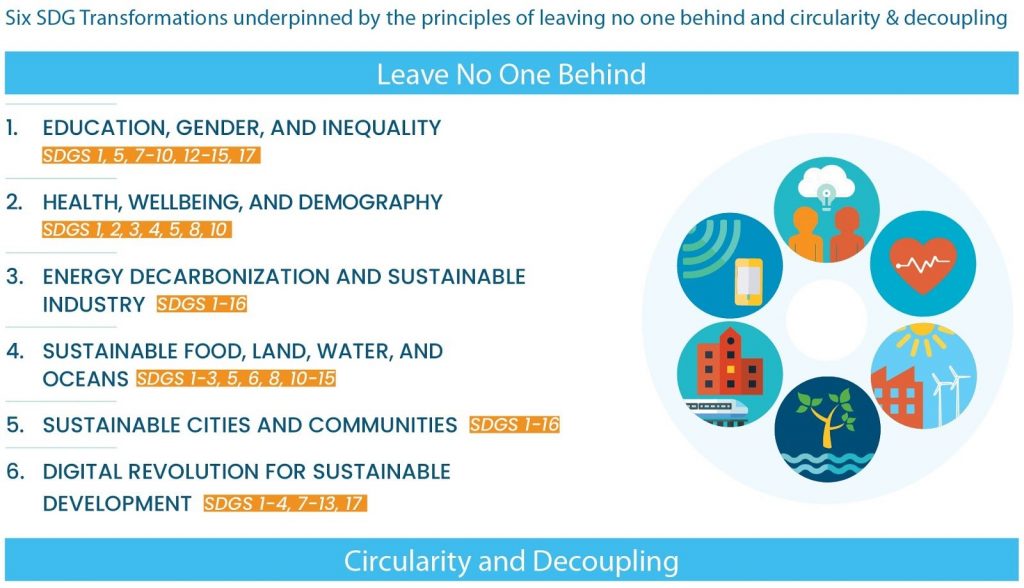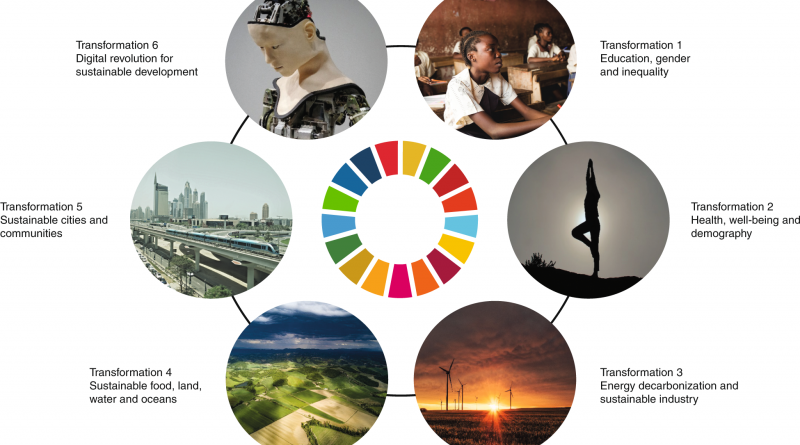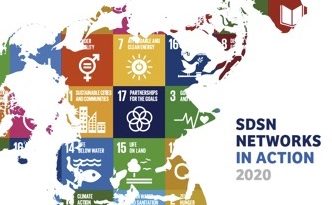Six Transformations to achieving the Sustainable Development Goals
![]()
The Sustainable Development Goals (SDGs) and the Paris Agreement on Climate Change call for deep transformations in every country that require complementary actions by governments, civil society, science, and business. Yet stakeholders lack a shared understanding of how the 17 SDGs can be operationalized. Drawing on earlier work by The World in 2050 initiative, the Sustainable Development Solutions Network (SDSN) has introduced six SDG Transformations as modular building-blocks of SDG achievement:

1. Education, Gender, and Inequality: Universal quality primary and secondary education; expanded social safety nets; improved labour standards; funding innovations and ensuring diffusion from research and development
2. Health, Wellbeing, and Demography: Universal health coverage; integration of prevention, therapeutic and palliative services; investments in child health and sexual and reproductive health; promotion of health lifestyles and better diets
3. Energy Decarbonisation and Sustainable Industry: Universal access to modern energy services; decarbonization of electricity generation; smart-grid management; improved energy efficiency
4. Sustainable Food, Land, Water, and Oceans: Efficient and resilient agricultural systems and fisheries; conservation and restoration of ecosystems; targeted interventions that encourage healthier diets; strategic management of land and water
5. Sustainable Cities and Communities: Ensuring access to water and sanitation; sustainable and efficient transport systems; participatory and inclusive urban planning; safe and healthy urban housing
6. Digital Revolution for Sustainable Development: Universal access to high-quality, low-cost mobile broadband; promote digital inclusion; digitization of public goods like education and healthcare; public facilitation of innovations in sustainable development
Each Transformation identifies priority investments and regulatory challenges calling for actions by well-defined parts of government working with business and civil society. Transformations may therefore be operationalised within the structures of government while respecting the strong interdependencies across the 17 SDGs. The paper also outlines an action agenda for science to provide the knowledge required for designing, implementing, and monitoring the SDG Transformations.
For more detailed information, please refer to the resources below:
- Find the working paper here.
- Full version of the paper.
- A short blog on the Nature community page describes the motivation for the paper.



